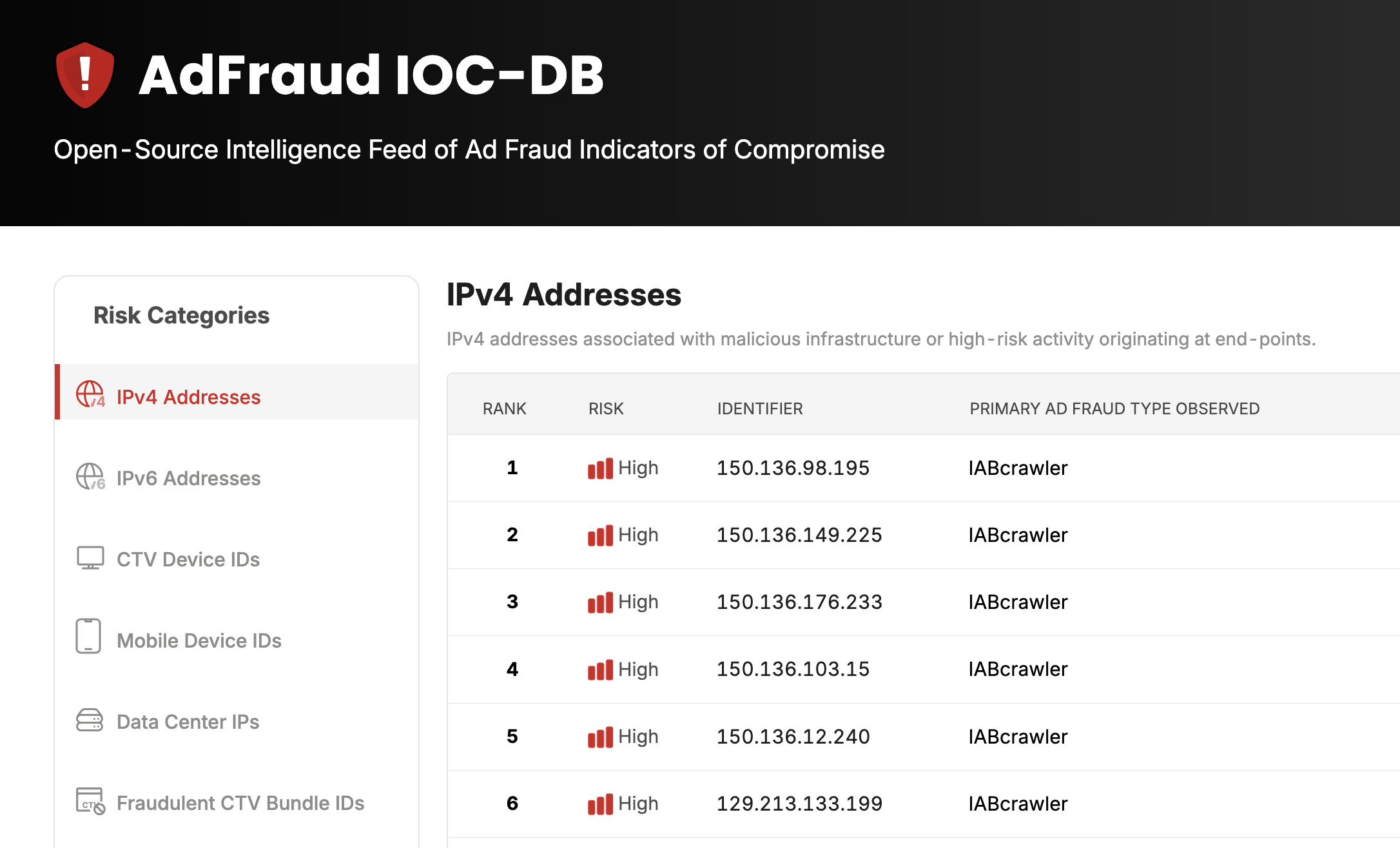Research study reveals 6% IVT rate on Meta-owned Facebook and Instagram mobile apps in Q3 2022.
LONDON, November 23, 2022 -- Pixalate, the market-leading fraud protection, privacy, and compliance analytics platform for Connected TV (CTV) and Mobile Advertising, today released the Q3 2022 Invalid Traffic (IVT) On Social Media Apps Report, a comprehensive examination of the instances of all forms of invalid traffic on popular social media apps on the web and mobile devices.
According to Pixalate’s research, TikTok’s mobile app had an IVT rate between 7-8% in Q3 2022, before showing signs of improvement with a dip to 2.5% in October 2022. Twitter’s mobile app had an IVT rate between 5.7% and 6.7% between July-October 2022, with October serving as its worst month of the four.
Key Findings:
- ~7% IVT rate stemming from Twitter’s mobile app in October 2022.
- ~7% IVT rate stemming from TikTok’s mobile app in Q3 2022, but it dropped in Oct. 2022.
- ~6% IVT rate stemming from Facebook’s mobile app from July-Oct. 2022.
- 6% IVT rate stemming from Instagram’s mobile app in Oct. 2022.
- 4.3% IVT rate from Reddit’s mobile app in Oct. 2022 - up nearly 2x from Q3.
- ~5% IVT rate stemming from Pinterest’s mobile app from July-Oct. 2022.
Why this matters
Ad fraud – which is a subcategory of IVT that covers fraudsters using intentionally deceptive practices designed to create fictitious activity – is a costly issue for advertisers. Juniper research estimates that advertisers will lose $68 billion to ad fraud in 2022. For consumers and content creators, higher rates of IVT across social media platforms is a potential sign of non-human activity, such as bot accounts, which threatens to degrade the user experience.
What's inside the report:
Pixalate’s Q3 2022 Invalid Traffic (IVT) On Social Media Apps Report includes:
- Analysis of IVT Traffic for Mobile Apps and Web for:
- TikTok
- Twitter
- Facebook
- Instagram
- YouTube
- Snapchat
- Reddit
- LinkedIn
- Pinterest
Download a free copy of the report here: Q3 2022 Invalid Traffic (IVT) On Social Media Apps Report.
About Pixalate
Pixalate is the market-leading fraud protection, privacy, and compliance analytics platform for Connected TV (CTV) and Mobile Advertising. Pixalate is MRC-accredited for the detection and filtration of sophisticated invalid traffic (SIVT) across desktop and mobile web, mobile in-app, and CTV advertising. www.pixalate.com
Disclaimer
The content of this press release, and the Q3 2022 Invalid Traffic (IVT) On Social Media Apps Report (the "Report"), reflect Pixalate's opinions with respect to factors that Pixalate believes can be useful to the digital media industry. Any data shared is grounded in Pixalate’s proprietary technology and analytics, which Pixalate is continuously evaluating and updating. Any references to outside sources should not be construed as endorsements. Pixalate’s opinions are just that, opinions, which means that they are neither facts nor guarantees. Pixalate is sharing this data not to impugn the standing or reputation of any entity, person or app, but, instead, to report findings and trends pertaining to programmatic advertising activity across websites and mobile apps in the time period studied. Per the Media Rating Council (MRC), “‘Invalid Traffic’ is defined generally as traffic that does not meet certain ad serving quality or completeness criteria, or otherwise does not represent legitimate ad traffic that should be included in measurement counts. Among the reasons why ad traffic may be deemed invalid is it is a result of non-human traffic (spiders, bots, etc.), or activity designed to produce fraudulent traffic.” IVT is also sometimes referred to as “ad fraud.” Per the MRC, “'Fraud' is not intended to represent fraud as defined in various laws, statutes and ordinances or as conventionally used in U.S. Court or other legal proceedings, but rather a custom definition strictly for advertising measurement purposes.”






